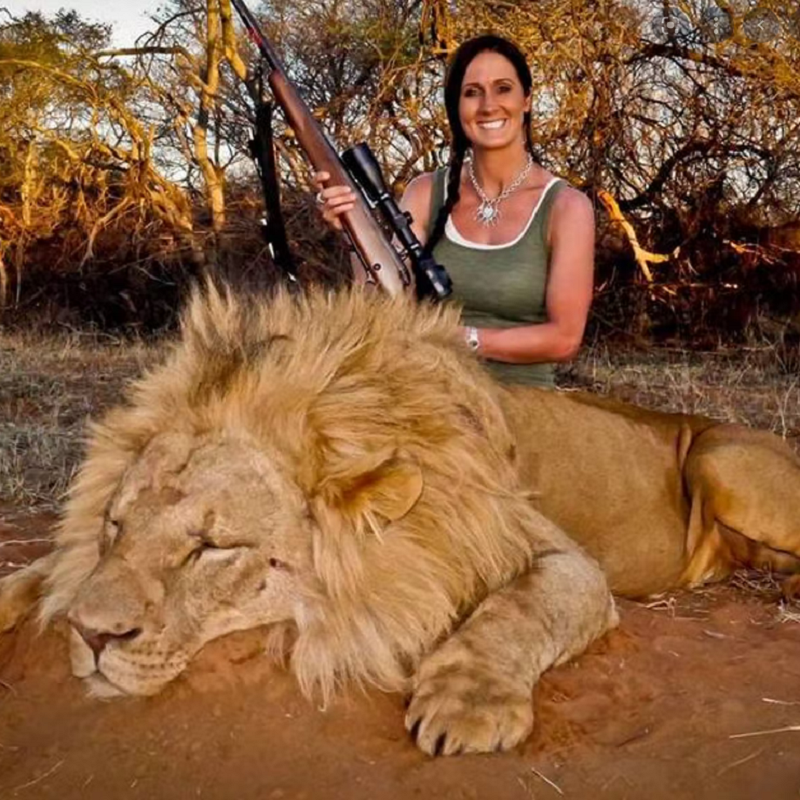Africa
KAHUMBU: Time To Take Sides On Trophy Hunting In Africa

By Dr. Paula Kahumbu
The recent murder of two famous Amboseli elephants in Tanzania in a paid to kill “hunt” has horrified Kenyans and the global conservation community. Adding salt to the wound, two people, not indigenous Africans, argue that Kenya is hurting Tanzania’s economy by refusing to open up trophy hunting.
I feel like we are in upside-down and inside-out world and unless we speak out and LOUDLY, these selfish, greedy, money adoring, animal hating hunters will destroy what’s unique to Africa, our spectacular wildlife which sets our continent apart.
For too long we have allowed them to dictate our religious beliefs, our politics, how we use our resources, the prices we pay for everything, and now, how we kill off what’s special, beloved and sacred.
The push from the Global North for African countries to embrace trophy hunting as a means of conservation and economic development is not only misguided but deeply offensive. Trophy hunting does not aids in poverty alleviation! It is outdated and morally corrupt practice, and reading language like Africa needs it because of our “population explosion” makes my blood boil.
Go back I say, to your global north country and hunt your squirrels. It’s all you have left in many places. Leave our iconic beings, our totems alone if you can’t feast on them with your eyes only.
Trophy hunting is often touted as a solution to poverty, with proponents arguing that it brings in significant revenue. However, the reality is starkly different. The economic benefits are marginal at best, with a disproportionate amount flowing back to foreign outfitters and a minuscule portion reaching the local communities that bear the cost of living alongside wildlife. The argument crumbles under scrutiny, revealing a narrative that serves external interests rather than local welfare.
And the term “population explosion” is not only pejorative but also echoes colonial-era rhetoric aimed at controlling and managing the African populace. This language frames Africa as a problem to be solved, not a continent of wealth in heritage diverse peoples and rich histories. It justifies intrusive conservation efforts, including trophy hunting, under the guise of managing wildlife populations, without addressing underlying issues such as habitat loss or human-wildlife conflict resolution.
How do you measure the cost of cultural and traditional disrespect?
I’ve been filming nature across the continent, and if there’s one thing I’ve leaened, African societies possess a profound connection with their natural environment. Wildlife is integral to our cultural and spiritual lives. Trophy hunting, with its focus on killing for sport, stands in stark contrast to these values. It represents a blatant disregard for the traditions and beliefs that have governed human-animal relationships in Africa for centuries, further alienating local communities from conservation efforts.
Trophy Hunting is Neocolonialism
The promotion of trophy hunting as a conservation strategy by the Global North is increasingly being seen as a form of neocolonialism. It perpetuates a cycle of dependency and exploitation, with African countries being told how to manage their natural resources. This dynamic undermines the sovereignty of African nations and disregards their capacity to develop alternative, sustainable approaches to conservation that align with their social, economic, and environmental goals.
So Yes, I’m angry. My blood is boiling at the arrogance that anyone would suggest that sayng no to trophy hunting is an attack on.any nations economic aspirations. This is not only flawed but deeply offensive. It reflects a neocolonial mindset that fails to respect African peoples aspirations, cultural values and sovereignty.
If you want to help wildlife in Africa, support the continent’s people and its natural heritage.
The writer is a renowned environmentalist.
Kenya Insights allows guest blogging, if you want to be published on Kenya’s most authoritative and accurate blog, have an expose, news TIPS, story angles, human interest stories, drop us an email on [email protected] or via Telegram
-

 Americas6 days ago
Americas6 days agoEpstein Files: Bill Clinton and George Bush Accused Of Raping A Boy In A Yacht Of ‘Ritualistic Sacrifice’
-

 Business1 week ago
Business1 week agoCooking Fuel Firm Koko Collapses After Govt Blocks Sh23bn Carbon Deal
-

 Business6 days ago
Business6 days agoABSA BANK IN CRISIS: How Internal Rot and Client Betrayals Have Exposed Kenya’s Banking Giant
-

 Business3 days ago
Business3 days agoKRA Can Now Tax Unexplained Bank Deposits
-

 Investigations1 week ago
Investigations1 week agoPaul Ndung’u Sues SportPesa for Sh348 Million in UK Court, Accuses Safaricom Boss of Sh2.3 Billion Conspiracy
-

 Investigations2 days ago
Investigations2 days agoEpstein Files: Sultan bin Sulayem Bragged on His Closeness to President Uhuru Then His Firm DP World Controversially Won Port Construction in Kenya, Tanzania
-

 Americas6 days ago
Americas6 days agoEpstein Files: Trump Accused of Auctioning Underage Girls, Measuring Genitals and Murder
-

 Lifestyle7 hours ago
Lifestyle7 hours agoThe General’s Fall: From Barracks To Bankruptcy As Illness Ravages Karangi’s Memory And Empire















